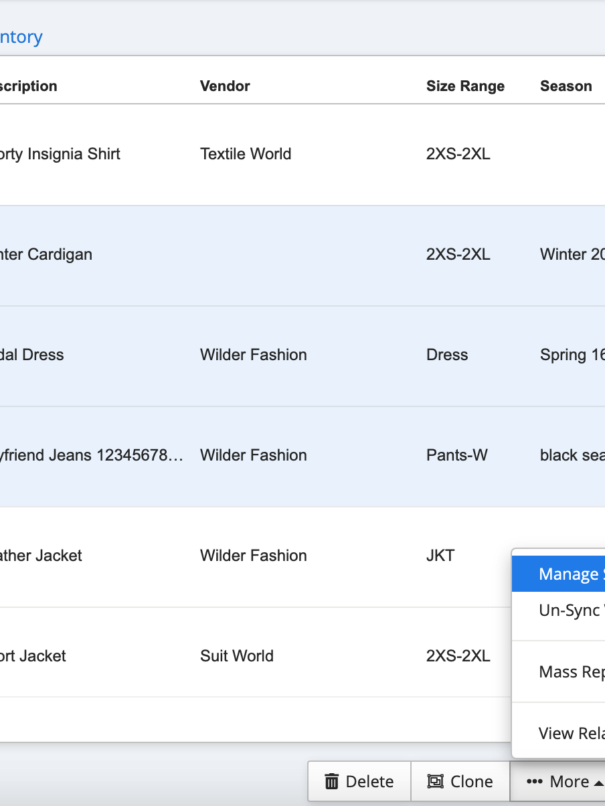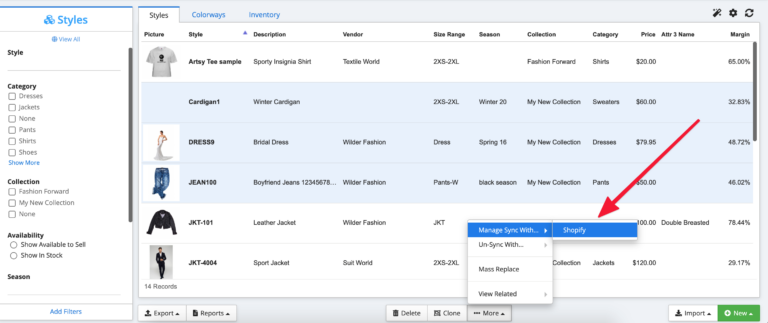Nowadays, global supply chains are the lifelines of businesses, and managing these complex networks efficiently has become paramount. Therefore, the integration of enterprise resource planning (ERP) systems into supply chain management (SCM) has emerged as a transformative solution.
In this article, we delve into the critical role of various ERP solutions in enhancing supply chain resilience and efficiency.
As businesses grapple with fluctuating demand, supplier reliability issues, logistical complexities, and regulatory changes, ERP systems offer a beacon of adaptability and proactive, agile supply chain planning and management.
From leveraging advanced technologies like AI and ML to integrating critical functions such as inventory management and compliance tracking, ERP systems stand at the forefront of revolutionizing supply chain planning and operations.
We will explore how these systems not only address current supply chain management challenges but also equip businesses to navigate future uncertainties.
Resilience in the Supply Chain: An Understanding of Its Importance
Resilience has become a buzzword for organizations that want to succeed in this period, which is characterized by global supply chains facing problems that have never been seen before.
It is not enough to improve supply chain management to simply be able to withstand disruptions; supply chain management and resilience also involve being able to transform difficulties into opportunities. The adaptation and evolution of enterprise resource planning systems are helping the proper execution of supply chain management processes and are becoming increasingly intertwined with this resilience.
They have traditionally been centered on the integration of multiple corporate processes to reduce costs and simplify operations. On the other hand, their function has extended to become an essential component in the defense of supply chains against disruptions, the maintenance of continuity, quality control and management of raw materials, and the promotion of agility.
Definition of the Supply Chain Resilience Concept and Elements That Are Crucial to It
The term “supply chain resilience” refers to a supply chain’s capacity to foresee unfavorable circumstances, deal with them, and recover from them.
If constructed on the pillars of agility, flexibility, and robustness, it enables businesses to react quickly and efficiently to instances that were not anticipated.
Examining the Historical Context and Its Growing Significance
Increased complexity and interconnectivity have characterized the development of global supply chains over time, making them more vulnerable to a wide range of risks and difficulties.
The intricate network of warehouse resources, supply chain partners, production and planning capabilities, supply chain disruption, and transportation management have become more prone to disruptions, ranging from natural disasters to geopolitical tensions.
In this complex landscape, the role of enterprise resource planning systems and supply chain management systems has become increasingly vital as these tools help in resolving resource conflicts, managing transportation and execution processes, managing fluctuating inventory levels, maximizing product availability, and ensuring that production schedules align with delivery dates.
Another significant aspect in this context is the increasing importance of real-time visibility in all supply chain processes and operations. The ability to monitor and own efficient supply chain management functions, control quality, source raw materials efficiently, reduce costs, and fulfill customer orders promptly is crucial in managing the uncertainties of market fluctuations and demand planning.
ERP systems provide this visibility, offering businesses the ability to make informed decisions based on accurate, up-to-the-minute data.
Furthermore, the ability to effectively manage production capacity, optimize production, control operational costs, and reduce waste has become a strategic focus. ERP and SCM systems facilitate this by offering advanced capabilities in demand planning, lean inventory management, and other production planning and optimization.
This ensures that manufacturing businesses are not only able to meet customer demands and ensure timely customer shipments, but also navigate and adapt to market fluctuations more effectively.
A General Introduction to ERP Systems
So, what exactly are ERP systems?
This type of system is a software platform that integrates a variety of company operations and tasks into a single software system. In addition to assisting in decision-making, operating costs, and improving operational efficiency, they offer real-time data and insights across all departments.
Supply Chain ERP Systems Have Undergone an Evolution
The evolution of ERP in supply chain management has been significant over the years. Initially emerging in the early 1960s as material requirements planning (MRP) systems, these were designed to balance production with demand and were a collaborative development between IBM and JI Case. This early version of the ERP system focused primarily on inventory tracking and coordinating production and delivery schedules, marking the first steps toward a more integrated approach to supply chain management ERP and business process management.
Through the decades, ERP systems have evolved to encompass a broader range of functionalities. By the 1980s, these systems, now referred to as MRP II, expanded to include finances, quality management and assurance, equipment maintenance scheduling, supply chain managers, and customer demand forecasting. This evolution represented a shift towards providing a more comprehensive view of various business processes, essential for efficient and high-quality production.
Entering the 1990s, ERP systems began to integrate not just manufacturing processes but the entire company as a whole, operating through a single database and incorporating data from all departments. This level of integration was a significant step forward, allowing for better visibility and coordination across different business functions and units.
In the 21st century, the advent of cloud computing and mobile technologies further transformed the ERP software system landscape. Cloud-based ERP software solutions offered greater accessibility and flexibility, supporting remote work and allowing integration of data from multiple sources in real time. The rise of artificial intelligence (AI) and machine learning (ML) technologies within these systems enabled more powerful data insights, improving business performance through AI-driven demand forecasting and ML-driven price optimization tools.
Regarding supply chain management, ERP systems have become instrumental in coordinating and streamlining a range of activities, from customer demand to planning and procurement to the manufacturing process, and distribution. This integration has enabled businesses to efficiently meet customer demands while controlling costs. ERP systems today offer modules that handle key supply chain management functions, aiding in planning, inventory management, warehouse management, and order management. This unified view of business data facilitates better planning and decision-making, contributing to improved efficiency and customer retention.
Supply Chain ERP Systems In The Apparel Industry
When it comes to the apparel industry, this shift mirrors the broader trends of technological advancement and the increasing complexity of supply chain management.
Initially, supply chain management ERP systems were focused on basic functions like inventory management and production scheduling. However, the unique challenges of the apparel industry, such as managing a wide range of styles, sizes, sourcing materials, and colors, demanded more sophisticated solutions.
Today, ERP systems in the apparel industry are designed to address these specific challenges. They offer a range of functionalities crucial for the modern apparel business, including:
- Inventory management: ERP systems help apparel companies handle the complexities of managing a diverse inventory. They provide tools for tracking and organizing various product attributes, which is vital for efficient operation in this sector.
- Supply chain optimization: Supply chain ERP solutions in the apparel industry streamline the entire process together, ensuring timely delivery of products. This aspect is critical due to the fast-paced nature of fashion trends and the need for rapid turnaround times.
- Production workflow monitoring: These systems enhance transparency and efficiency in production processes, contributing to more profitable operations. They also improve supply chain management and support sustainability by helping to ensure environmentally responsible product delivery.
- Customer relationship management (CRM) integration: Modern ERP systems in the apparel industry often integrate with CRM systems, allowing businesses to effectively manage customer data, track sales trends, maximize product availability, and improve customer interactions.
- Product lifecycle management (PLM): ERP systems can serve as PLM solutions, helping companies manage every stage of a product’s life, from design to discontinuation.
- Order management: Efficient order processing, invoicing, and shipping are facilitated by ERP systems, which is crucial for customer satisfaction.
- Business intelligence reporting: Access to real-time analytics and the ability to track key performance indicators are provided, enabling informed decision-making.
- Real-time data for decision-making: The pace of business in the apparel industry demands robust and clear visibility into operations, which modern ERP systems provide.
Conclusion
As we have seen, the integration of ERP in supply chain operations is more than a trend; it is a strategic imperative for businesses seeking to thrive in a dynamic global market. These systems bring together the myriad aspects of supply chain operations, from inventory and warehouse management to customer relationship management, under a single, streamlined platform.
By offering real-time data, predictive analytics, and automation capabilities, the ERP system integration in the supply chain empowers businesses to make informed decisions, reduce operational costs, and enhance overall efficiency.
The future of supply chain and inventory management is inextricably linked with the evolution of ERP solution technologies. As these systems continue to advance, incorporating more sophisticated features and capabilities, businesses can anticipate even greater agility, resilience, and competitive advantage in managing their supply chains. In essence, ERP systems have become the backbone of efficient, agile, and resilient supply chain operations in today’s interconnected and fast-paced business world.







